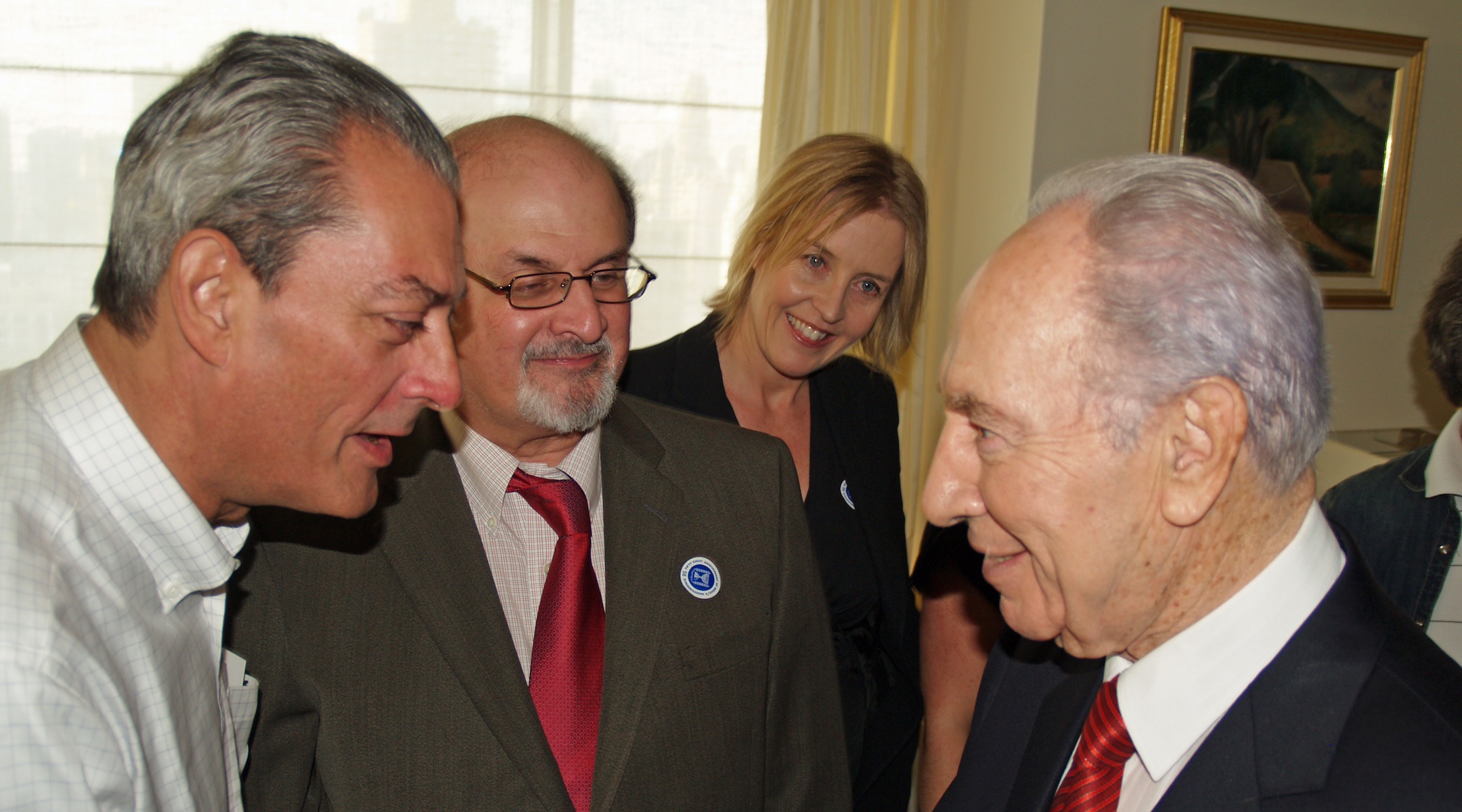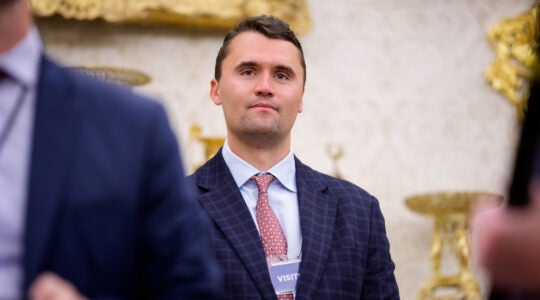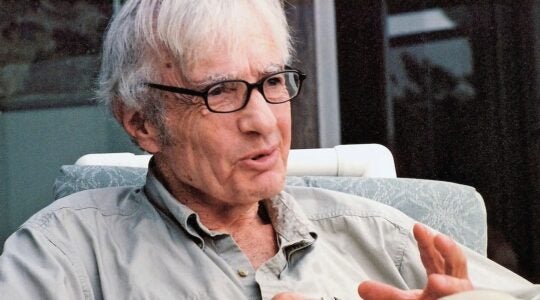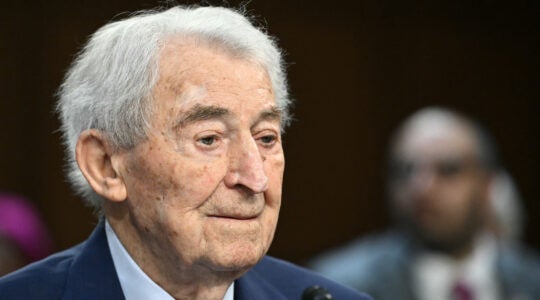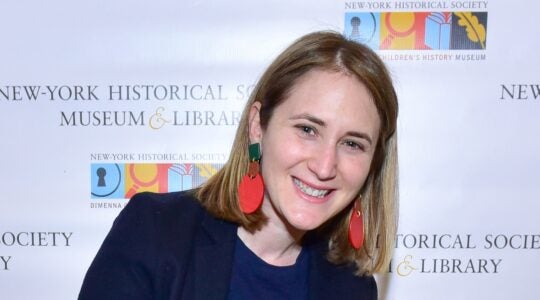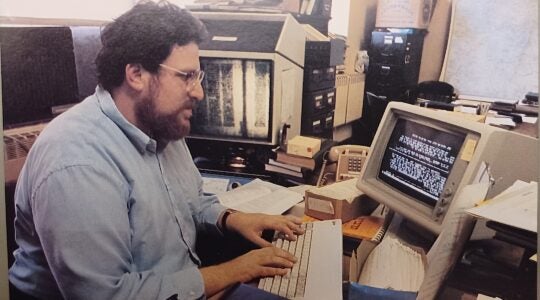(New York Jewish Week) — Jewish novelist Paul Auster, whose “New York Trilogy” in the 1980s and ’90s vaulted him into the front ranks of American novelists, died Tuesday evening at his home in Park Slope, Brooklyn.
The cause was lung cancer, according to a family friend.
Raised in West Orange and nearby Maplewood, New Jersey — heavily Jewish suburbs of Newark that he depicted in the 2017 autobiographical novel “4 3 2 1” – Auster looked east to New York and became one its most iconic chroniclers. In the trilogy “City of Glass” (1985), “Ghosts” (1986) and “The Locked Room” (1986), he used the conventions of detective novels and film noir to explore what one interviewer called “the annihilation of identity in the urban world.”
And like, Philip Roth, another Jewish-American writer with roots in Newark Jewry, Auster used the metafictional trope of including himself — or an avatar named “Paul Auster” — as a character in the novels.
Hugely prolific, Auster would write more than 30 books, including “Timbuktu” (1999), “Moon Palace” (1989), “The Music of Chance” (1990) and, most recently, “Baumgartner” (2023). Not all were critically acclaimed, but even when reviews were mixed he could count on adoration in Europe, where he was one of the most popular American literary exports.
He was also a filmmaker, collaborating with co-director Wayne Wang on the cult movie “Smoke,” starring Harvey Keitel and William Hurt, about a Brooklyn tobacco shop and its eccentric clientele, and a sequel, “Blue in the Face.”
Auster was born in 1947 to Jewish parents in Newark. His father, Sam, owned a furniture shop and sold real estate and, according to family lore, as a teenager was fired from a job at Thomas Edison’s laboratory because he was Jewish.
In “4 3 2 1,” a New Jersey Jewish boy with the unlikely name Archie Ferguson (a playful reference to an old joke about how Jews changed their names when they immigrated to America) dreams of achieving literary success in New York City.
“New York is not just a place, it’s an idea,” he told The Guardian in 2002. “It’s this idea of an all-welcoming city of immigrants where everyone can be a New Yorker.”
Auster himself studied at Columbia University starting in 1965, where he took part in some of the anti-Vietnam War protests that riled the campus at the time. In his autobiography “Hand to Mouth,” he recounts how he abandoned a post-graduate degree, took a job on an oil tanker and scraped by as a poet in Paris.
In 2020, Auster told Tablet that it was during this period that he “became interested in Jewish history and Jewish questions,” and noted the influence of three Jewish writers: Paul Celan, the Egyptian-born Edmond Jabès and the New Yorker Charles Reznikoff. “It got me thinking about my own relationship to Judaism, and the relationship of Judaism to writing,” Auster said.
Auster was married twice. He was divorced from his first wife, the writer Lydia Davis, with whom he had a son, Daniel. His second wife, the writer Siri Hustvedt, and their daughter, actress and musician Sophie Auster, survive him.
Auster’s family was struck by unspeakable tragedy in 2022 when Daniel, 44, died from a drug overdose after he was charged with the negligent homicide of his 10-month-old daughter, Ruby, in a drug-related incident. Auster never publicly discussed their deaths.
Although Auster rarely centered Judaism in his work, many of his books tended to “revolve around familial dysfunction, fears of mortality, and Jewish malaise,” as a reviewer put it in 2023.
In an essay about Reznikoff, Auster mused on the double consciousness of being Jewish and American, describing it as “the condition of being in two places at the same time, or, quite simply, the condition of being nowhere.”
The New York Jewish Week brings you the stories behind the headlines, keeping you connected to Jewish life in New York. Help sustain the reporting you trust by donating today.
